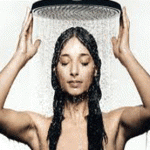 Sunny weather is perfect for hiking, gardening, swimming and having fun. It is a happy time with those family outings, but it could also lead to common health problems that occur while you are outdoors.
Sunny weather is perfect for hiking, gardening, swimming and having fun. It is a happy time with those family outings, but it could also lead to common health problems that occur while you are outdoors.
Sunburns
Staying out in the sun for long hours may not suit everyone’s skin type. Infants and children can easily be affected due to their tender skin. Cramps, exhaustion and strokes amongst adults, due to heat are also possibilities on a scorching sunny day.
Wearing a long sleeved shirt, a hat and a pair of sunglasses is the simplest way to avoid sunburns. Always consider it important to wear sunscreen with a SPF (sun protection factor) of 15 or more. Repeat the application 3-4 hours after the first time you applied.
Try staying in the sun when it is milder – early mornings or evenings, and not between 10 am and 2 pm. Drink plenty of water, fan your body and eat fresh foods instead of high-saturated fats.
Food Poisoning
Even if you take the effort to pack food for outdoor lunches, picnics, camping or barbeques, food poisoning is a real risk in warm weather. Meat, dairy products, eggs, poultry, seafood, cooked rice and ready-to-eat foods fall under the high-risk category. Pregnant women, kids and the elderly are more vulnerable to food contamination.
The basic food rule to follow is – try keeping cold foods cold and hot foods hot. Make sure you store raw meat in an insulated cooler. Cut and fix all the salads beforehand to avoid handling food while you are outdoors. Pack with utmost care. Boil drinking water or use disinfecting tablets.
Wash your hands, use disposable towels and resort to a sanitizer before and after handling food. Make sure you keep insects, birds and animals at bay every time they land as uninvited guests.
Nasal Allergy
If staying around your favorite garden bothers you during spring, late summer and fall, you are probably allergic to pollens. It is impossible to escape this condition since pollen is nearly everywhere on the planet. However, limiting the exposure is in your hands.
Try staying indoors in warm, breezy and dry days. Pollen counts are highest on such days. And if you cannot help but be outdoors, wear goggles. Pollen-filtering masks are available for people who are highly sensitive to pollen.
Mowing the lawn or any kind of yard work cause large amounts of pollen, so it is best to avoid such activities altogether. Hire someone instead, to care of your yard.
Insect Bites
Bees and mosquitos can often cause swelling, redness and itching. Try protecting your skin by dressing appropriately. Insect repellent cans are a must addition to your packed gear while camping or trekking activities.
It is necessary to wash your hands properly after applying a repellant and before consuming food. If the redness and swelling is constant, using an ice pack helps.
Common sense and a cautious attitude should prevail in cases of accidents and emergencies, for e.g. make sure you assist children below the age of five around water zones. Eating well, drinking right and keeping clean are basics that should be followed.


 Cart : 0 items - $0.00
Cart : 0 items - $0.00










